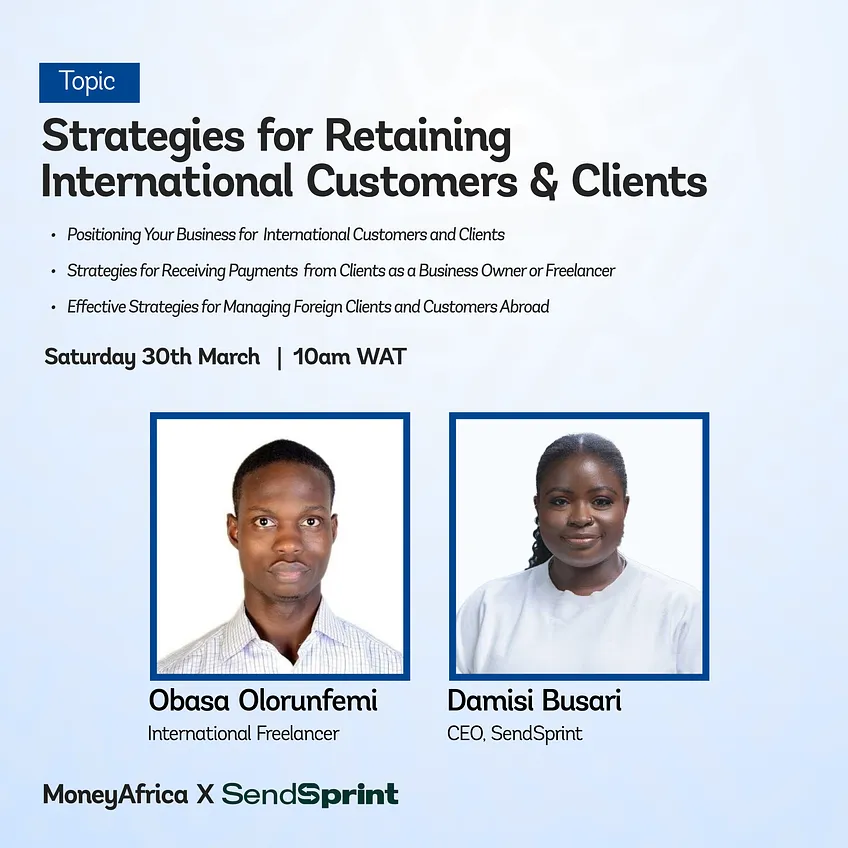Good morning!
How are you doing?
Last week, while scrolling through my social media feed, I stumbled upon a tweet that caught my attention. It was from someone offering a sincere apology for their inability to assist, explaining the overwhelming demands of personal projects that required absolute discipline and focus. See the tweet here.
As I thought about this person’s predicament, I couldn’t help but empathise with the weight of financial requests that may have contributed to their need for such a public apology.
It got me thinking about the countless people who find themselves inundated with requests for financial support, from family obligations to random solicitations from acquaintances or even strangers on the street.
In a world where financial boundaries are often blurred and saying “no” can feel like a daunting task, it’s essential to equip ourselves with strategies to navigate these situations gracefully. Here are ways you can avoid unnecessary billing:
1. Set clear boundaries:
Clearly communicate your financial limitations and boundaries to others. Let them know that while you sympathise with their needs, you have your financial responsibilities to prioritise.
2. Develop a script:
Prepare a polite but firm response that you can use when declining financial requests. This can help you respond confidently and consistently without feeling guilty or pressured into agreeing.
3. Educate others:
Take the opportunity to educate family members and friends about financial responsibility and the importance of planning and budgeting. Encourage them to take proactive steps to improve their financial situations.
4. Encourage independence:
Instead of giving them fish, teach them to fish. Empower them to become self-sufficient. Connect them with employment opportunities, training programmes and resources to develop additional skills, thereby enhancing their earning potential.
5. Practice self-care:
Remember to prioritise your own well-being and financial stability. It’s okay to say “no” and prioritise your own needs, even if it means disappointing others temporarily.
6. Avoid showing off:
Many Nigerians enjoy recognition and adulation. Those cheering you on will ultimately seek financial assistance from you. Nothing goes for nothing.
While it can be challenging to navigate constant financial requests, especially for someone perceived as financially stable, it’s important to establish and maintain clear boundaries. Saying “no” is about protecting your financial well-being and empowering others to take control of their circumstances. By setting boundaries, offering guidance, and encouraging independence, you can help foster greater financial responsibility and self-sufficiency among your loved ones. Remember, saying “no” is not a sign of selfishness but rather a necessary step in prioritising your own needs and maintaining healthy relationships.
Ultimately, by saying “no” when necessary, you’re not only safeguarding your own financial stability but also promoting accountability and growth within your community.
***
We have a webinar series in partnership with Sendsprint for entrepreneurs and freelancers who want to build a sustainable global brand. Register here to participate in the next session on Sunday, April 7, 2024.

You can also watch the recap of the first session here after which, you should fill out this form to access the resources Sendsprint has provided for you!
***
Would you like to know the state of your finances?
Take this test to see how you are doing financially
***
Do you know that we have our own podcast? It’s MONEYTALKS!💚
Here’s a link to listen to all the amazing episodes we have!
***
Thank you for reading Money Africa’s Blog.
Please feel free to share it.
Do you have any questions? You can send an e-mail to info@themoneyafrica.com or send a DM to any of our social media channels.
***
MoneyAfrica premium plan
Are you a mid to high-income earner? Do you find communities a bit too busy? You should sign up for our premium plan.

You can learn more about that here.
***
We often get questions regarding how to plan your finances to align with your relocation plans, especially for students seeking to further their studies. As always, we have heard you, and we have put together an e-book to help you navigate this. Follow this link, to get your FREE copy of the e-book: The Japa Encyclopedia.
***
Get our annual subscription and learn more about investing safely and building a solid portfolio in 2024.
Don’t forget to:
- Join our community, if you want to smash your 2024 financial goals. It takes at least 30 days to build great habits that will last you a lifetime. So why not start now? There is a lot you can achieve.
- If you would like to document your financial journey in 2024, then our journal would be an excellent fit for you. It costs ₦7,500 (excluding delivery).
- Get a budget sheet to track your monthly expenses. Click here
- Get an investment tracker to be on top of all your investments. Click here
MoneyAfrica is a financial literacy platform. Our goal is to make everyone better with their finances.
We do this by engagements via our:
– social media handles
– platforms for paid community members (for adults and students)
– webinar sessions with corporate clients
Would you like to join any of the communities? Please click here
Would you like us to hold a webinar for your company’s staff? Please send an email to info@themoneyafrica.com


